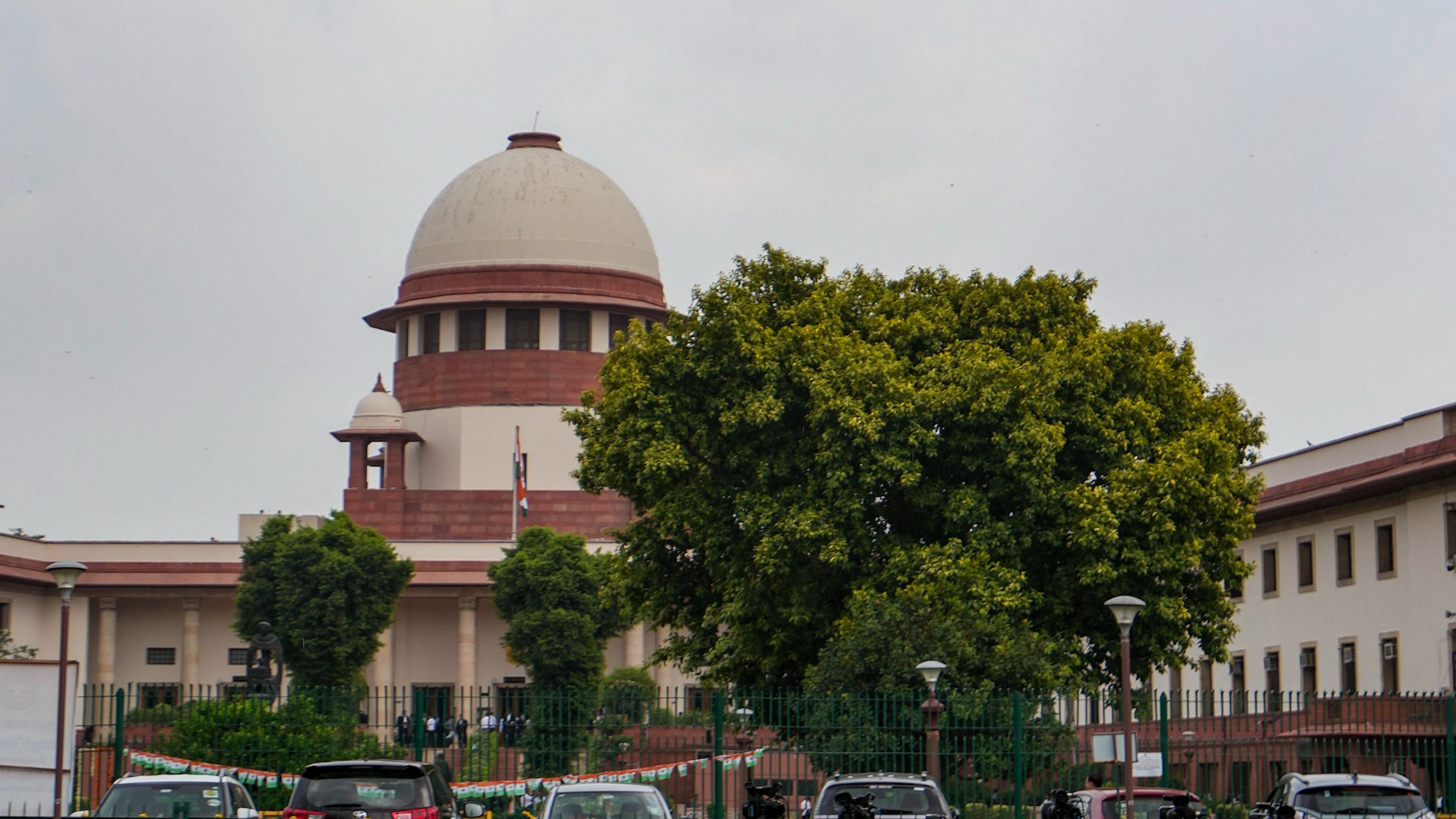
The Supreme Court of India.
Credit: PTI Photo
New Delhi: The Association for Democratic Reforms (ADR) on Thursday approached the Supreme Court with a contempt petition against the SBI for “wilfully and deliberately disobeying” the deadline set in the electoral bonds case by not submitting information to the Election Commission.
ADR said the SBI “deliberately” filed the application seeking an extension till June 30 to provide details of electoral bonds bought and encashed just two days prior to the March 6 deadline set by the Supreme Court “in order to ensure that the details of the donor and the amount of donations are not disclosed to the public before the upcoming Lok Sabha elections”.
“This defiant approach of the SBI towards citizen’s ‘Right to Know’ about huge sums of money received by parties through electoral bonds and corporates in a non-transparent and unaccountable manner is reprehensible…” the petition stated.
The ADR, which was the main petitioner in the original case, said that the SBI's move “betrays its clear motive to stifle” citizen’s voice and right to audit actions of the political class and therefore should be held as “serious breach of contempt”.
Lawyer Prashant Bhushan mentioned the ADR petition in the Supreme Court, after which a bench headed by Chief Justice DY Chandrachud instructed him to send an email, stating that it would be listed. The apex court, on February 15, declared the electoral bond scheme unconstitutional and directed the SBI to disclose details of donors as well as those who encashed it.
Challenging SBI’s assertions regarding the time needed to compile details of electoral bonds, the petition argued that SBI possesses a unique number assigned to each electoral bond along with the Know Your Customer details of the purchaser. The ADR contended that electoral bonds not encashed within 15 days are required to be deposited in the PM Relief Fund, and it is "inconceivable" that SBI does not have the recorded information readily available within its database.
Referring to a media report, the petition also asserted that electoral bonds are entirely traceable, as indicated by the fact that SBI maintains a confidential number-based record of donors who purchase bonds and the parties they donate to. It stated that a simple query on the database can generate a report without requiring any manual verification.
Furthermore, it was highlighted that SBI must furnish details of 22,217 bonds valued at Rs 9,227.46 crore encashed by 20 parties since 2019-20. With the majority of the bonds being of a denomination of Rs one crore and not smaller denominations, ADR argued that the extension requested by SBI is deemed "malafide".
The petitioner also said the SBI has 2.60 lakh employees, 22,500 branches, 17 local head offices, 101 zonal offices and 208 foreign offices in 26 countries and it is “hard to believe that SBI is not able to gather information which SBI has itself recorded”.
Citing RTI responses received by Commodore Lokesh Batra (retired), which revealed that SBI spent Rs 1.5 crore on the floating of electoral bonds and the IT system for managing them, the ADR stated that this implies SBI has a "well-functioning" IT system for managing the financial instruments.
The ADR also said that only 19 out of the 29 authorised SBI branches sold electoral bonds, and only 14 encashed them, while 25 parties opened designated accounts. The petitioner argued that compiling this information should not be "difficult" given that SBI had a system in place.
The ADR also asserted that the extension request was a "clear attempt to undermine the authority" of the apex court. It claimed that the SBI application seeking more time did not mention the progress made so far or the steps taken to comply with the judgment, nor did it mention any partial compliance.
Moreover, the application was not filed by SBI Chairman Dinesh Kumar Khara but by a lower-level functionary, Narendra Pratap Singh, an Assistant General Manager working in the SBI Corporate Centre in Mumbai. Singh does not even appear in the list of 59 high-ranking officers working in the Corporate Centre, the ADR noted.
